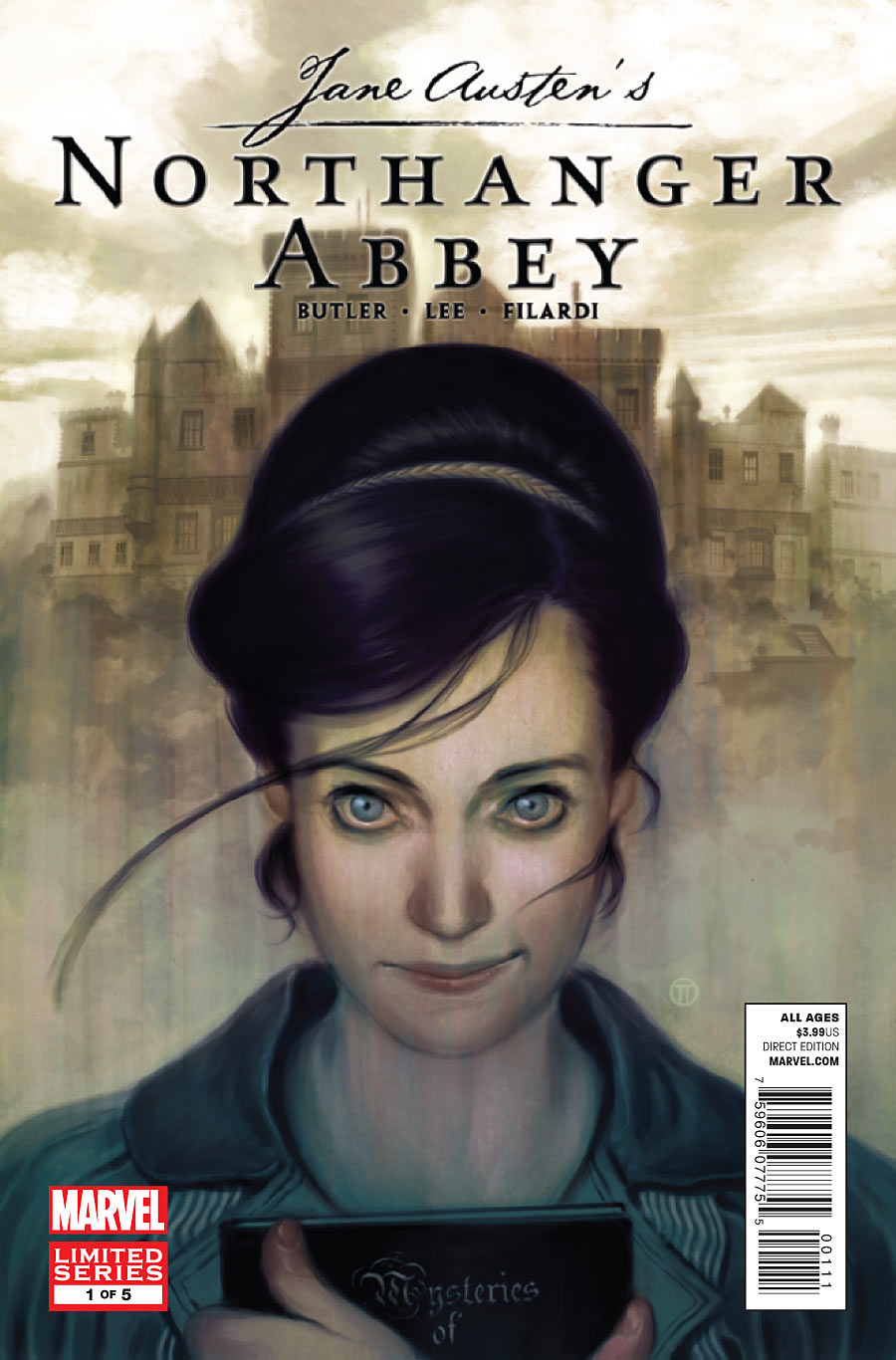Well, I see that someone out there has done their homework! Way to go! Pat yourself on the back - you are the only persons brave enough to answer all 18 questions of the quiz (let alone one). Some of the answers in the book may vary a bit, so here they are. (Taken from So You Think You Know Jane Austen?: A Literary Quizbook by John Sutherland & Deirdre Le Faye.)
1) Q. How many children do the Reverend Mr and Mrs Morland have? How many of their Christian names do we know?
A. The Moreland's have 10 children. At the beginning of the narrative Catherine is 17 (18 when she marries). She has 3 older brothers, James (about 22), Richard (about 20), and a third, unnamed (about 18). Sarah ('Sally') is 16. When Catherine returns to Fullerton and the end of the novel we are briefly introduced to the two youngest of the family, George (6) and Harriet (4). There are 3 unnamed boys between Sally and George (we assume they are boys because they are away at school).
2) Q. Where did Henry go to university?
A. Oxford. But he in no way resembles his fellow Oxonian, Thorpe.
3) Q. What are the 'friends of Henry's solitude' at Woodston?
A. 'A large Newfoundland puppy and 2 or 3 terriers'
4) Q. What aspect of Catherine's walk does General Tilney particularly admire?
A. The elasticity, meaning Catherine's gait is springy, lithe, light-footed.
5) Q. What do we know of Henry's complexion and what does this mean?
A. He has 'brown skin, with dark eyes, and rather dark hair'. Fair and pallid complexions were more fashionable. Henry's color suggests an outdoor life. His brother, Captain Fredrick Tilney, has a florid complexion suggestive of a dissipated mode of life which his brother, Henry, avoids.
6) Q.What color dress (as Mrs Allen's needle-sharp eye notes) does Miss Tilney 'always wear'?
A. White. It means the Tilneys have a full compliment of servants. She need not wear clothes more than once before they are laundered. In Mansfield Park, Mrs Norris believes in turning away maids who presume to wear white - that colour is above their station in life.
7) Q. Who says, 'after all the romancers may say, there is no doing without money'?
A. Isabella Thorpe, gold-digger that she is.
8) Q. For what does the General rebuke Fredrick on the day the rest of the family leave Bath?
A. Being late for breakfast.
9) Q. Why, having just arrived at Bath (to arrange accommodations for himself and his father and his sister) does Henry suddenly leave, and what should we deduce from his departure?
A. He returned to Woodston to take a Sunday service, declining to leave it to his curate. His conscientiousness contrasts with that of the two truanting Oxonians.
10) Q. On the trip to Northanger Abbey we are informed that Catherine has a 'new writing desk'. What may we deduce from it?
A. She is dutifully thinking of writing letters, and, needless to say, this is a good quality in Austen's fictional world. Catherine must have bought it with money given her for clothes. Isabella, doubtless, would have not wasted her substance on a writing desk.
11) Q. Why does Catherine not, as she plans, steal out at midnight to investigate the 'mysterious apartments' in which, she is convinced, the General's poor wife is secretly incarcerated?
A. She falls asleep.
12) Q. Why does Jane Austen specifically tell us that Catherine has a 'charming game of play with a litter of puppies just able to roll about' in Henry's stable-yard at Woodston?
A. Catherine is an instinctively affectionate country-bred girl, without any squeamish fears of getting her hands or dress dirty, and Henry observes her kindheartedness.
13) Q. In the company of Henry and Eleanor, General Tilney clearly seems to think that Catherine is the Allens' heiress (basing this on John Thorpe's misinformation). Are Eleanor and Henry similarly deceived as to Catherine's wealth and handsome prospects?
A. Surely not. Eleanor would have noted Catherine's lack of valuable jewels and modest wardrobe.
14) Q. Catherine thinks Isabella is now engages to Captain Tilney and that the Captain will gallop back to his father (as James rushed back to Fullerton) for paternal permission. Henry's guess is that his brother's marrying Isabella is 'not probable'. Has he know this from the first?
A. Yes.
15) Q. Why has Catherine, even before the General's wrathful return, suggested that she should, perhaps, leave?
A. She will be intruding, she says, and intruding on the privileges of a guest. One presumes the Morlands have brought their children up to be well mannered.
16) Q. Why is Henry not at Northanger Abbey when Catherine is summarily banished?
A. It is Sunday and he is taking the service at Woodston.
17) Q. How long is it before Henry appears at Fullerton to propose?
A. Three days. He has taken a whole day to consider his rebellious action. It is a rational decision, he has, of course, his ('very considerable') personal fortune from his mother's 'settlements'.
18) Q. How long do Henry and Catherine have to wait for parental consent?
A. One year.


